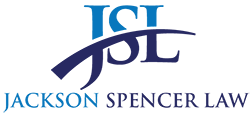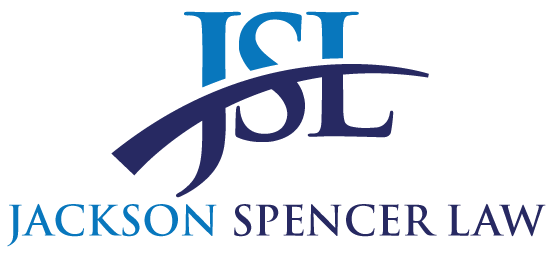UPDATE: The Equal Employment Opportunity Commission recently published guidance on this issue. Please see our December 22 blog post for up-to-date information on the question of mandatory vaccines.
In May, Operation Warp Speed, a program with the goal of producing “300 million doses of safe and effective vaccines with the initial doses available by January 2021,” was officially announced. We are now rapidly approaching the January deadline – and it does appear that a vaccine is coming soon.
For many employees, the possibility of a vaccine begs the question whether employers can mandate vaccinations in order to return to work. Some would prefer their employers make a COVID-vaccine mandatory to ensure workplace safety. Others are more hesitant. Regardless of where you stand on the issue of vaccines, it’s worth knowing a bit about the legality of employer-mandated vaccinations.
Let’s dive into the rules with a special look at two potential exemptions that may come into play.
At Jackson Spencer Law, we represent employees who have questions about their workplaces’ responses to COVID-19.
Visit our services page for information about all the ways we can help.
Can our employers make us get COVID-19 vaccinations?
Requiring employees to provide proof of vaccination is not a new concept, although it is destined to pop up in the news more as we get closer to a coronavirus vaccine. Depending on the industry you work in, you may already be subject to mandatory vaccines. Healthcare workers and public-school employees are probably already familiar with mandatory vaccine requirements.
Simply put, an employer can make you get a COVID-19 vaccine when one is available.
Federal law permits mandatory vaccination requirements, as long as employers comply with the Americans with Disabilities Act (ADA) and Title VII of the Civil Rights Act of 1964. Texas law mostly reflects federal law on the issue of mandatory vaccines.
Let’s take a look at the exemptions available under the ADA and Title VII.
Medical Accommodations Under the ADA Related to Vaccinations
The ADA enables employees to request an accommodation if they have a covered disability. While there is a split among federal courts about whether a “sensitivity to vaccinations constitutes a covered disability,” there are some conditions that definitely constitute a covered disability.
For instance, immunocompromised individuals and those with a history of Guillain-Barré syndrome may not be physically able to handle a vaccine. Any employee that requests a medical accommodation will have to provide proof of their disability and will also likely need a letter from their physician explaining why they cannot tolerate a vaccination.
Regardless, employers should engage in a good faith discussion with an employee who requests a medical accommodation under the ADA. After an employee provides notice of a covered disability, an employer would need to prove the requested accommodation creates an “undue hardship” for them in order to deny the request. The question of the year (or possibly even the next several years) will be whether employers can claim that exemption from a mandatory COVID vaccine will constitute an undue hardship.
The EEOC has already provided a little guidance on the subject. Specifically, they claimed that COVID-19 meets the ADA’s “direct threat standard,” which allows for stricter controls in the workplace than would normally be permissible. This is why employers have been able to test and screen employees throughout the pandemic in a way that has been historically rare. While the EEOC and OSHA have not issued specific guidance regarding mandatory vaccines (yet), there is a good chance employers will be allowed to implement them, with very narrow exceptions.
Religious Accommodations Under Title VII Related to Vaccinations
In some rare and special circumstances, an individual may ask for exemption from a mandatory vaccine rule if they can establish that a “sincerely held religious belief” prohibits vaccination. Different federal courts, however, have interpreted what constitutes a “religious belief” differently.
The Third Circuit (covering Delaware, New Jersey, and Pennsylvania) has held that an employee’s opposition to vaccines was a personal belief and did not reach the threshold of a “sincerely held religious belief.” The Court did point out, however, that some religions, such as Christian Scientists, may qualify for religious exemption from vaccination.
Even if an employee can show that they have a sincerely held religious belief regarding vaccines, employers do not have to provide a religious accommodation “that results in more than a de minimis burden.” This rule provides yet another hurdle to those who may try to argue that their religion prohibits them from getting a vaccine, because most employers could easily argue that any religious exemption presents a burden. This is a much simpler standard for employers to meet than the “undue burden” they would have to prove in a medical accommodation case.
The Fifth Circuit (covering Texas, Louisiana, and Mississippi) ruled in favor of an employer who terminated a firefighter for refusing to meet the vaccination requirement. It is worth noting that the firefighter asked his employer for a religious exemption to the vaccine requirement and he was offered two possible accommodations: to switch positions or to wear a respirator while on duty. The employee refused both offers and was subsequently fired. Without looking to whether the employee’s decision was due to a sincerely held religious belief – the Court explained that because the employer offered not one but two reasonable accommodations, they met their obligation to work with the employee.
Are you concerned about your rights in the workplace?
If you are concerned about your health or safety in the workplace, we can help. Whether you are concerned about your employer failing to implement COVID-19 protections or you fear you may not be able to comply with mandatory vaccines, we can help you determine your next steps. Contact our office for a free consultation for more information.



